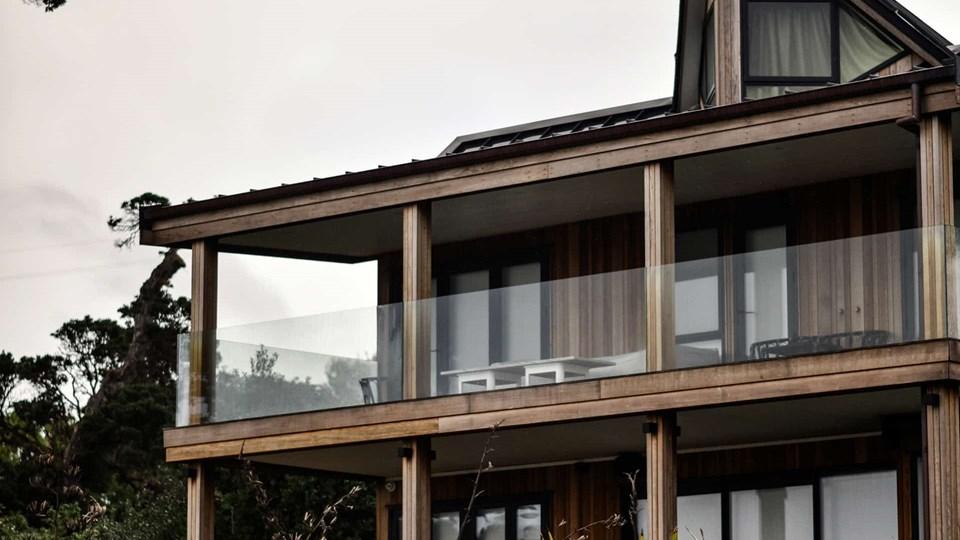When embarking on a new home construction project, one of the crucial decisions you’ll face is choosing between a septic system and a sewer connection. Both options have their own set of benefits and drawbacks, and understanding them is vital to making an informed choice. In this article, we’ll explore the key differences and considerations for a new build.

Understanding Septic Systems
Septic systems are independent wastewater treatment systems commonly used in rural areas where centralized sewer systems are unavailable. These systems consist of a septic tank and a drain field, which work together to treat household wastewater naturally.
How Septic Systems Work
The septic tank collects wastewater from the household and separates solids from liquids. The solids settle at the bottom, forming a sludge layer, while the liquid, called effluent, flows into a drain field where it undergoes natural filtration and treatment through the soil.
Benefits of Septic Systems
- Cost-effective: Septic systems eliminate the need for monthly sewer bills, reducing long-term costs.
- Eco-friendly: They promote natural wastewater treatment and reduce the environmental impact associated with centralized sewer systems.
- Independence: Homeowners have control over their wastewater treatment, making them less reliant on municipal services.
Drawbacks of Septic Systems
- Maintenance: Regular maintenance, including tank pumping, is essential to ensure proper functioning.
- Space requirements: Septic systems require adequate land for the drain field, which may not be feasible for smaller properties.
- Potential for failure: Poor maintenance or unsuitable soil conditions can lead to system failure, resulting in costly repairs.
Exploring Sewer Connections
Sewer connections involve linking your home to a centralized wastewater treatment facility through a network of pipes. This option is more common in urban and suburban areas.
How Sewer Connections Work
Wastewater from your home flows through pipes to a municipal treatment plant, where it undergoes thorough treatment before being released into the environment. This system ensures efficient and reliable wastewater management.
Benefits of Sewer Connections
- Convenience: Homeowners benefit from a hassle-free and reliable wastewater management system.
- Minimal maintenance: Unlike septic systems, sewer connections require little to no maintenance on the homeowner’s part.
- Space-saving: Sewer connections do not require a drain field, making them suitable for properties with limited space.
Drawbacks of Sewer Connections
- Cost: Monthly sewer bills can add to long-term expenses, making it less cost-effective than a septic system.
- Environmental impact: Centralized treatment plants can have a higher environmental impact compared to the natural filtration process of septic systems.
- Dependency: Homeowners are reliant on municipal services, which can be affected by infrastructure issues.
Factors to Consider for New Builds
When deciding between a septic system and a sewer connection for your new build, several factors should be considered to ensure the best choice for your property.
Location
Your property’s location plays a crucial role in determining the feasibility of a septic system or a sewer connection. Rural areas often lack access to sewer lines, making a septic system the only viable option.
Soil Conditions
The soil’s ability to absorb and treat wastewater is critical for septic systems. Conducting a percolation test can determine if your soil is suitable for a drain field.
Budget
Consider both initial installation costs and long-term expenses. While septic systems may have higher upfront costs, they can be more cost-effective over time due to the absence of monthly sewer bills.
Environmental Impact
Evaluate the environmental impact of each option. Septic systems promote natural filtration, while centralized sewer systems may have a higher carbon footprint due to transportation and treatment processes.
Property Size
If your property has limited space, a sewer connection may be more suitable, as it eliminates the need for a drain field.
Installation Process
Septic System Installation
Installing a septic system involves several steps, including soil testing, system design, and obtaining permits. It’s crucial to hire a qualified professional to ensure compliance with local regulations.
Sewer Connection Installation
Connecting to a sewer line typically requires less time and fewer permits compared to installing a septic system. However, it may involve excavation and construction to link your home to the municipal system.
Maintenance and Upkeep
Septic System Maintenance
Regular maintenance is essential for the longevity of a septic system. This includes periodic pumping to remove accumulated sludge and inspecting the system for any signs of issues.
Sewer Connection Maintenance
Sewer connections require minimal maintenance from the homeowner, as the municipal system handles most of the upkeep. However, it’s important to avoid disposing of harmful substances down the drain to prevent blockages.
Cost Comparison
Comparing the costs of septic systems and sewer connections involves considering both installation and long-term expenses. While septic systems may have higher upfront costs, they can save money over time by eliminating monthly sewer bills.
Environmental Impact
Understanding the environmental impact of each option is crucial for environmentally conscious homeowners. Septic systems promote natural treatment, while sewer systems rely on energy-intensive processes.
Conclusion
Choosing between a septic system and a sewer connection for your new build is a significant decision that requires careful consideration of various factors. By understanding the benefits and drawbacks of each option, you can make an informed choice that aligns with your budget, environmental values, and property requirements.

FAQs
What is the lifespan of a septic system?
A well-maintained septic system can last 20 to 30 years or longer, depending on factors such as usage, maintenance, and soil conditions.
Is a sewer connection more expensive than a septic system?
While a sewer connection may have lower upfront costs, monthly sewer bills can add to long-term expenses, making it potentially more costly over time.
Can I switch from a septic system to a sewer connection?
In some cases, it’s possible to switch from a septic system to a sewer connection, but it depends on the availability of sewer lines and local regulations. Consulting with a professional is recommended.
Essential Plumbing Guide Water Supply Lines Filtration Installation Eco-Friendly Fixtures
This article contains affiliate links. We may earn a commission at no extra cost to you.




